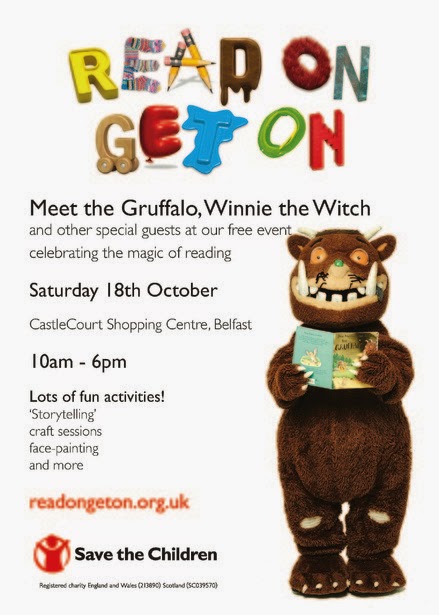 Phil Boyce runs the Oink! blog, dedicated to the original, cheeky, innovative comic that once featured the best of British talent, as well as extra posts on every aspect of the world’s greatest comic, creator info, behind-the-scenes shenanigans and more. He recently posted this article on the British comics industry and some of those deriding its current state and has kindly given us permission to re-publish it on downthetubes…
Phil Boyce runs the Oink! blog, dedicated to the original, cheeky, innovative comic that once featured the best of British talent, as well as extra posts on every aspect of the world’s greatest comic, creator info, behind-the-scenes shenanigans and more. He recently posted this article on the British comics industry and some of those deriding its current state and has kindly given us permission to re-publish it on downthetubes…
So what’s this all about? Last year, I published a post about Save the Children‘s Read On Get On campaign, which focussed on how important it is for parents to ensure their children are getting at least the minimal amount of reading time every day.
The event was a huge success, I’m very glad to say, and when speaking with my parents about it they confirmed how much comics had helped me develop my own reading skills further as a young boy alongside my books. In addition comics inspired me creatively throughout school and beyond, even if it did then take until I was in my mid-30s to take it seriously!
A quick look through any supermarket or the one sole newsagent we have here in Belfast and I see a treasure trove of titles for today’s kids to pick up in the same way as I did, definitely an improvement over just a few years ago. Add in the vibrant and exciting small press scene we have these days, as well as digital comics, and the potential is there for children to be enjoying comics as I did many, many years ago and to benefit from them in the same way.
And all that is without even mentioning the dedicated comics shops and all the imported titles!
Yes – we’re focussing on UK comics here.
The thing is, the British comics industry has come under attack in recent years from people whose main goal seems to be to bring it crashing to its knees and put everyone in it out of work for their own selfish reasons. They’ll never achieve their ludicrous goal, obviously, but they’re the ones who shout the loudest, as trolls usually do. You may have come across websites, forum posters or blog writers who proclaim the UK comics industry is dead, that it simply doesn’t exist and believe-it-or-not they’re able to word these things in such a way that some readers who think these people are some authority on the subject believe them. And woe betide anyone who disagrees!
At the end of the day not only are they trying to put adults off buying UK comics but they’re happy to try to take this brilliant way of developing reading skills away from the children.
When they do decide to “review” the latest comics they don’t buy them, they steal them by using illegal scans (god forbid they’d spend any money of them) and completely miss the point, complaining about how they don’t appeal to them in the same way as the comics of their childhood did. They kind of answer their own complaint there, don’t they? These people are in their 50s and 60s and these comics are aimed at today’s children. Not that they recognise this, of course, that’d stop them from complaining.
They’ll also try to discredit anyone who points out their falsehoods by claiming the only people who say the UK comics industry even exists are only doing so because they’ve a vested interest. They’ll say it doesn’t exist and its supporters are only saying these positive things because they’re getting paid by that industry for work. Do you see the gaping hole in their theory there too? Because it seems lost on them.
Nevertheless, I’ve no vested interest and here I am writing this post. I’m not getting paid by anyone to write this blog and I can’t even place adverts up (Oink! doesn’t belong to me after all and so rightfully I can’t make money off someone else’s product). It’s the trolls who have the vested interests.
Why are they doing this then? Surely there’s a reason? Well yes. I’m not saying this is the case with them all but there’s certainly some, the ones who seem to complain the most, who were either never able to crack their way into the comics industry for themselves or who did have a career but through their own mistakes, or unwillingness to adapt to the modern ways of working in the field, no longer do. They blame the industry for what did or didn’t happen, even attacking anyone successful in it nowadays too, and claim the only reason they can’t get work is because there is none as the industry here in the UK is “dead”.
I think even Mary Lighthouse would struggle with their reasoning and their tactics above when the shops look like this:

Photo: Phil Boyce

Photo: Phil Boyce

Photo: Phil Boyce
Apparently, none of these comics and comic-magazines in Belfast’s sole newsagent (Eason) exist. This must be a mirage that my iPhone also picked up.

Photo: Phil Boyce
This is my local Asda, which is small compared to most. Not only are there kids’ comics in the big display but those bottom shelves run way, way past that trolley.
And look! These are also British comics, but they’re on sale in Malta! If there’s no UK industry how can we be exporting them?

Comics on Sale in Malta Airport in December 2015, a rack doimated by British publications. Photo: John Freeman

British comics on sale in Qwara, Malta in December 2015. Photo: John Freeman
But scenes like these don’t stop them, so instead they attempt to argue their point when presented with pictures like these by stating a ‘comic’ must fit a very particular, very narrow pre-set format. Taking their arguments together a comic must be a weekly humour title aimed at kids, with cover-to-cover comic strips and must be purchased from a newsagent. To you and me, that’s just one type of many various types of comic and while it was once the main format it no longer is. But wait, they go further.
On top of that they say digital comics don’t count because they’re not in print; neither do small press comics as they’ve got too small a print run and aren’t available in a newsagent. They’ve also said books don’t count either, nor do graphic novels, comics featuring imported strips and all the comic strips in magazines such as Doctor Who Magazine, Private Eye or in newspapers. If you work on any of these type of publications, apparently this doesn’t count as working in the UK comics industry either.
See what I mean about trying to pigeon-hole what a ‘comic’ is meant to be or indeed what counts as working in the industry? Ridiculous, isn’t it? If we took their arguments as gospel then my own childhood was all a lie!
My blog was created as a dedicated Oink! one, a humour comic packed from cover-to-cover with strips and I don’t think even it being a fortnightly would makes it fall foul of their rules. But I’ve also covered some other titles, both in my Beyond Oink! series of posts about the other comics I collected at the time and in the posts about new content from Oink!‘s creative team. Taking a look back at just the titles covered in my blog and taking into account these apparent rules, it’s clear I’ve been wrong and I’ll need to go back and edit them all!
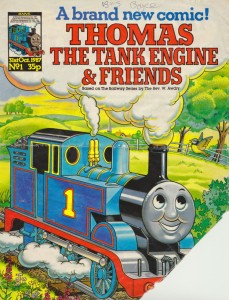
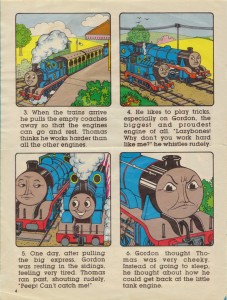
Who knew innocent
Thomas the Tank Engine could be such a bare-faced liar! Calling his publication, launched at Marvel UK, which continues to this day, a comic when it didn’t include any strips? These picture-panel stories may have been eagerly anticipated every fortnight but what a scamp he was to proclaim that on the cover of the premiere issue and suckering us all into believing it was a comic.
The Real Ghostbusters may have been here to save the world but can we really trust them when Marvel UK marketed this as a comic when only roughly 50 per cent of it was strip? Never mind about the hugely enjoyable text stories, the hilarious Spengler’s Spirit Guides and the fascinating looks at real-world urban myths (among other features), they conned over 100,000 fans into buying it every week at the height of its popularity!
Well now don’t we all feel a little bit silly when we proclaim we collected the Marvel UK version of
The Transformers? With about half of all the stories being imported from the US those editorial teams must’ve had an easy time of it, only working on half those 332 issues. After all, any issues that only contained American strips apparently weren’t put together by anyone in the UK industry. Who knew? I feel cheated, I don’t know about you.
Thunderbirds The Comic? ‘The Comic’? Tut tut, Tracy family, you’re meant to have been role models for not just us kids in the 1990s but for a whole generation before then too! Yet about a quarter of your high-quality fortnightly was made up of intricate cutaways by Graham Bleathman like the above, or fact-files, text features and
Thomas The Tank Engine-like picture-panel stories telling the future history of your family. I don’t care how enjoyable it all was, I now know it wasn’t a comic.
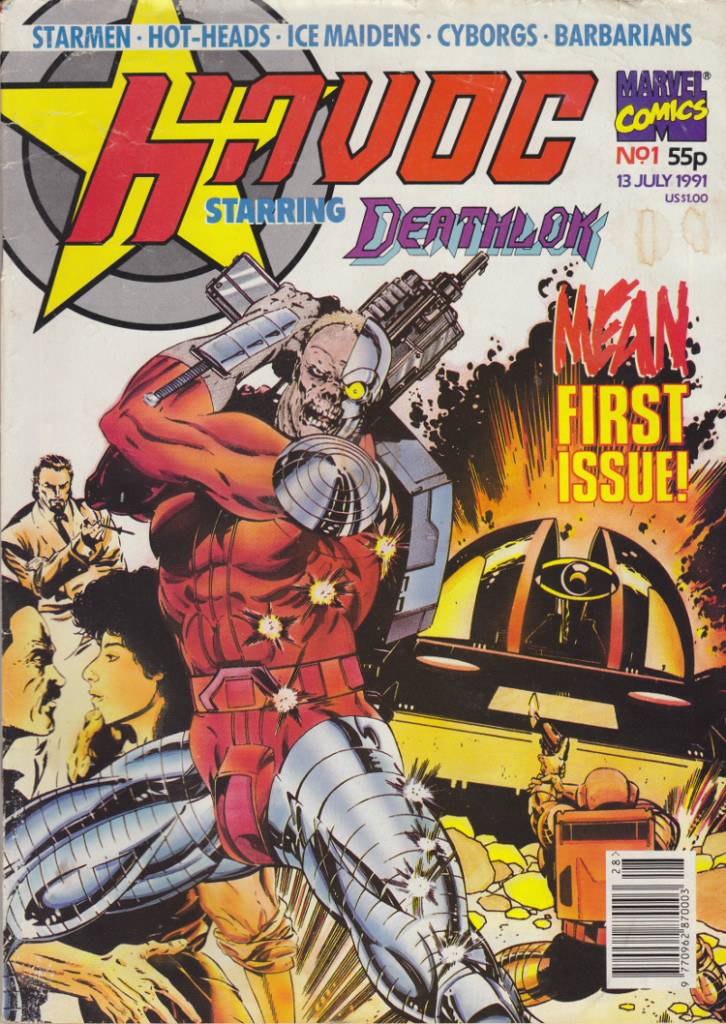
In addition to all that, what about the likes of
Havoc and
Jurassic Park, both of which solely printed American strips. The former imported ones we’d simply not had the chance to read on this side of the pond, repackaging them into bite-sized chunks and creating a fun weekly anthology. The latter remained monthly like its US counterpart but cut the main strip into chunks and backed it up with other dino-themed stories such as the stunning “Age of Reptiles” strip as well as text features on the novel and movie in those early issues.
Both referred to themselves as British comics, UK versions of the originals, which required British editors and designers amongst others to bring them to the shelves. Or maybe these roles also don’t exist and the only people who work in the comics industry are writers and artists etc.
Lunacy.
(Oh and as an aside, The Beano, The Dandy and Buster are usually held aloft as the finest examples of top-quality British comics, and so they should be, often used to back up the silly rules. But in their early days they featured text stories, and adventure ones at that too! So obviously these leaders in the British industry only became comics later on then?)
Comics in the 1980s always had a mix of features, strips and otherwise, it’s what made our titles different here in the UK and in fact when I tried some American titles as a child I found them lacking because they had just the one strip and nothing else. Such was the way I was brought up on UK comics. We loved them and, yes, I’m taking the mickey above with those pictures obviously, but I’m making the point about not only how ridiculous these rules are but also how hypocritical they are, coming as they do from people who collected these comics themselves or even worked on them!
But what about these rules of theirs that apply to the new way of producing comics these days? How about those brilliant new comics the Oink! creators have brought us over the past couple of years?
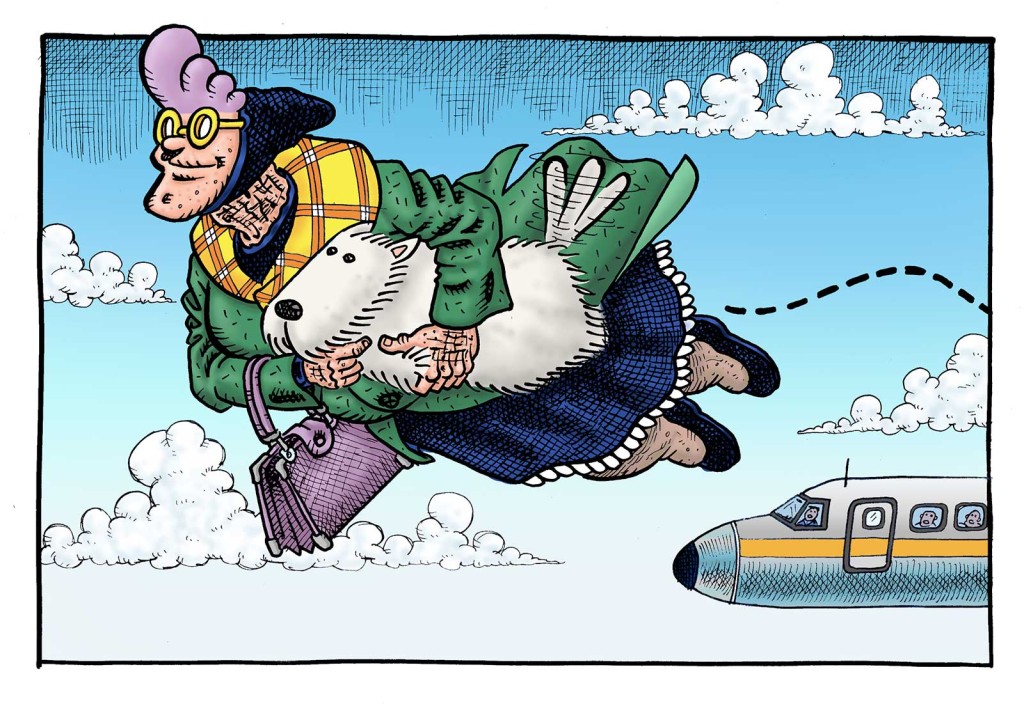
Psycho Gran by David Leach
I’ll have to rethink how I’ve written about this on the blog (for example
this article here about Psycho Gran by David Leach). It’s what’s called a “digital comic” and I’ve placed that in quote marks because it’s what I was told at the time, but now I know better. It’s not printed on paper so it’s not a comic. It may be cover-to-cover humour strips, it may have taken David a year to write, draw and colour it all
and be available on an app and website called Comixology but don’t be fooled; it’s all a conspiracy to get your hard-earned £1.49.
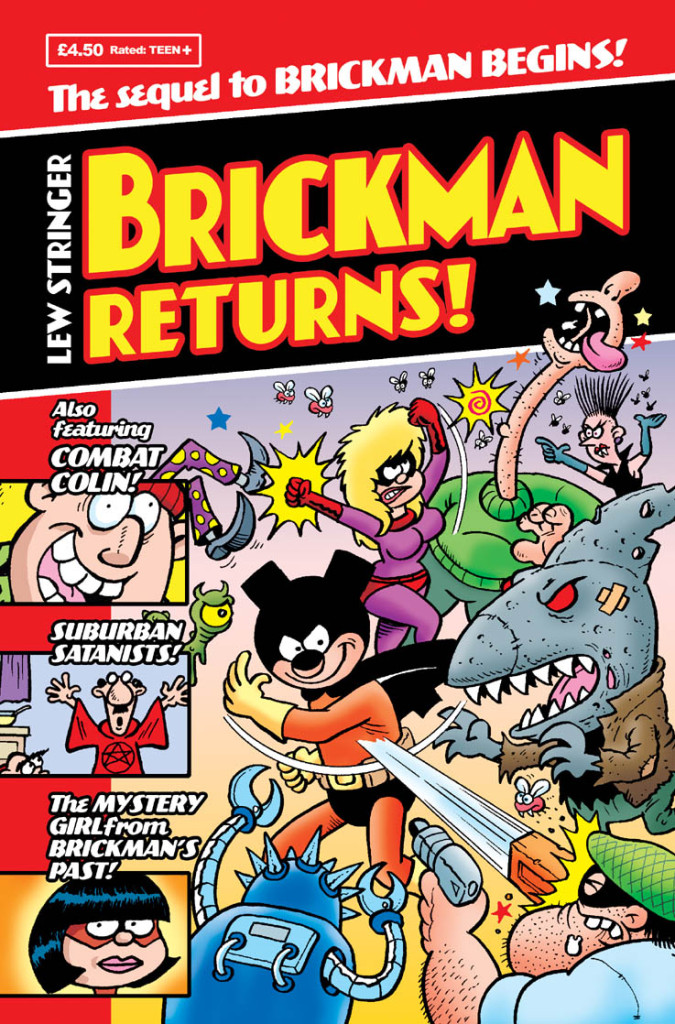
Now I enjoyed
Brickman Returns immensely
when it arrived in the post but I’ll have to have a quiet word with creator
Lew Stringer about how he’s advertising it on his blogs. After all, it arrived in the post! It’s not available in newsagents and even though it certainly looks like a comic in every respect, and a very high-quality one at that I might add, it was all for naught because the way I purchased it forbids it from being a comic. Such a shame, but there you go.
Then there’s David Lloyd‘s Aces Weekly. Ah! Now we’re getting somewhere, aren’t we?
It’s cover-to-cover strips. Check!
It’s suitable for all. Check!
But wait! It’s digital. {Insert Family Fortunes’ ‘X’ noise here}
Oh well. So close!
I’m having a laugh with this, but that’s the only way you can view these rules and these people who wish to attack and tear down the UK industry.
Books don’t count? So all those graphic novels that win awards and get turned into hugely successful movies aren’t comics? Did our annuals as kids not count?
Comics aimed solely at kids are the only ones that count? Then why are they even reading comics at all? Also this means 2000AD and Judge Dredd Megazine also don’t count?
I could go on and on but these are just the examples of things I’ve collected myself.
SUPPORT THE UK COMICS INDUSTRY
I haven’t even mentioned the convention scene! It used to be we’d be lucky if there were a couple of comics conventions a year in the UK but now we’ve got them nearly every single week! Below are pictures from the London Film and Comic Con and the Lakes International Comic Art Festival (2014) showing two very different events, of which there are so many and of many different sizes, taking place everywhere from large cities to small towns, the likes of which are now a regular occurrence across the country…
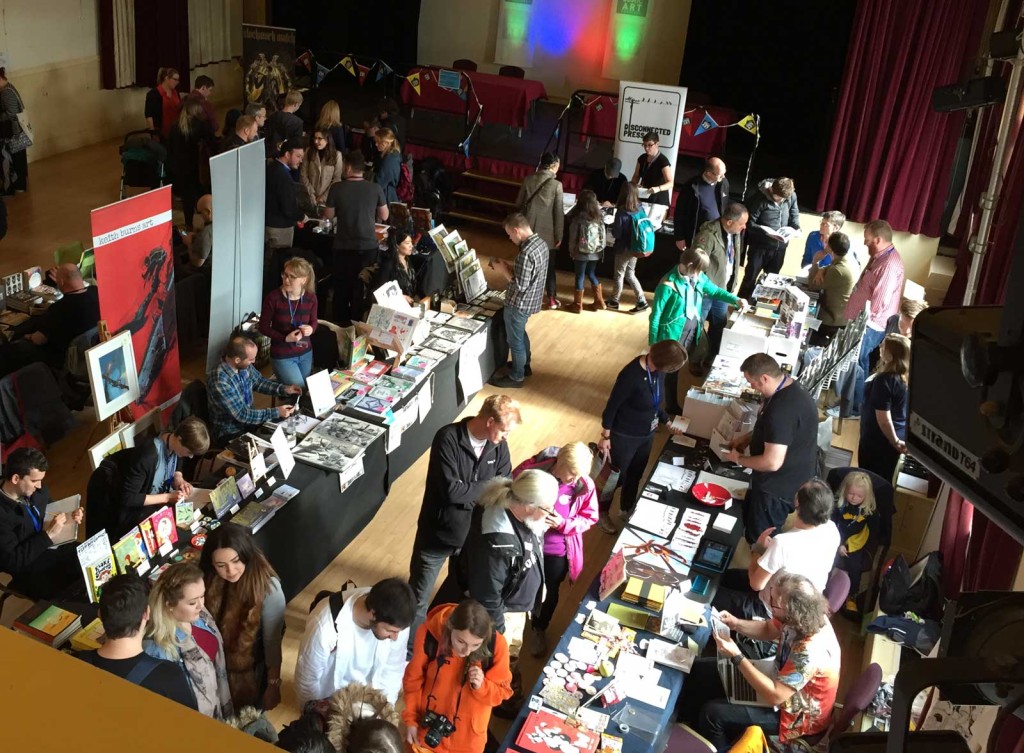
Enthusiastic comic fans mix with equally enthused comic creators in the Comics Clock Tower at the 2015 Lakes International Comic Art Festival. Photo: John Freeman
Even
Belfast has conventions!
Click here to read Stevie Robinson’s report for the recent Belfast Film and Comic Con.
Yes, one of the events above is a film and comic convention but it doesn’t matter, despite the desperate claims to the contrary in some dark corners of the internet, who I’m assuming would even dismiss the San Diego Comic Con because the movie and TV industries now attend too? Or they say things like it’s only those fans of retro comics who attend because there’s nothing for UK fans to see otherwise.
Are you getting tired of these terrible excuses to get out of admitting they’re wrong? So am I, so that’s it.
When you hear someone say “support the UK comics industry” don’t be thinking they’re saying it because it’s on its knees or anything! Go back five years and the shelves were adorned with plastic toys with a slim, badly-produced magazine attached but that’s no longer the case. These still exist, but they’re in the minority. Many may be bagged and have gifts but what’s inside is great content for your kids; comics strips, text stories, picture-panel tales, activities… basically, fun while reading!
Isn’t that the most important thing? There’s loads out there for adult collectors like always (did we disregard Watchmen back in the 1980s by the way?) but for your young ‘uns there’s a wealth of great stuff out there.
The music industry evolved and changed beyond all previous recognition with the advent of Apple’s iTunes but maybe all those music sales don’t count either because they’re digital? No, of course that’s not the case, but it’s the equivalent of saying that when these people state digital comics don’t count. Digital comics have allowed us to enjoy a huge array of completely original titles which publishers simply wouldn’t have taken a chance on and have allowed small independent creators to release their titles globally!
Similarly the small-press comics industry, which has always existed and been celebrated, has expanded massively thanks to modern technology and it’s easier than ever to get a comic title published this way. Don’t get me wrong it’s still a lot of hard work, we want quality after all, but while the print runs are smaller (hence “small press”) the large variety of original titles out there should be celebrated instead of being brushed aside!
There are loads of sites to read up on, my personal favourites being right here – Down the Tubes, Lew‘s Blimey! blog and the aforementioned Other Worlds Than These from my friend Stevie Robinson. Lew and John have written multiple times about the true state of affairs in the UK comics industry and the vast array of goodies on offer, so save them and keep yourselves up-to-date, pig pals.
I believe the UK comics industry is in the middle of a renaissance in the same way as the music industry was when it embraced digital and in much the same way as the TV industry is at the moment thanks to services such as Netflix etc. The magazine industry will get there eventually but the comics industry is evolving and changing, as any industry needs to do, it’s finally starting to follow the music industry’s lead and the British creators are leading the way. It’s a very exciting time.
HAVE YOURSELF A VERY MERRY LITTLE CHRISTMAS
So this Christmas why not buy a few annuals or Christmas specials for your children’s stockings and support the UK comics industry. Support it and then the people who work in it will be able to create more of what you and your children love! The small people in your life may even wish to take up comics reading regularly as a result and, believe me, they’ll thank you for it forever!
The founder of downthetubes, which he established in 1998. John works as a comics and magazine editor, writer, and on promotional work for the Lakes International Comic Art Festival. He is currently editor of Star Trek Explorer, published by Titan – his third tour of duty on the title originally titled Star Trek Magazine.
Working in British comics publishing since the 1980s, his credits include editor of titles such as Doctor Who Magazine, Babylon 5 Magazine, and more. He also edited the comics anthology STRIP Magazine and edited several audio comics for ROK Comics. He has also edited several comic collections, including volumes of “Charley’s War” and “Dan Dare”.
He’s the writer of “Pilgrim: Secrets and Lies” for B7 Comics; “Crucible”, a creator-owned project with 2000AD artist Smuzz; and “Death Duty” and “Skow Dogs” with Dave Hailwood.
Like this:
Like Loading...
Categories: 2000AD, British Comics, Creating Comics, Features
Tags: Aces Weekly, ASDA, British Comics Industry, Buster, David Leach, David Lloyd, Doctor Who Magazine, Easons, Havoc, Humour Comics, Judge Dredd Megazine, Jurassic Park, Lakes International Comic Art Festival, Lew Stringer, London Film and Comic Con, Malta, Oink, Opinions, Phil Boyce, Private Eye, Psycho Gran, Read On Get On, Save The Children, SF Comics, Superhero Comics, The Beano, The Dandy, The Real Ghostbusters, Thomas the Tank Engine, Young Children's Comics and Magazines
 Phil Boyce runs the Oink! blog, dedicated to the original, cheeky, innovative comic that once featured the best of British talent, as well as extra posts on every aspect of the world’s greatest comic, creator info, behind-the-scenes shenanigans and more. He recently posted this article on the British comics industry and some of those deriding its current state and has kindly given us permission to re-publish it on downthetubes…
Phil Boyce runs the Oink! blog, dedicated to the original, cheeky, innovative comic that once featured the best of British talent, as well as extra posts on every aspect of the world’s greatest comic, creator info, behind-the-scenes shenanigans and more. He recently posted this article on the British comics industry and some of those deriding its current state and has kindly given us permission to re-publish it on downthetubes…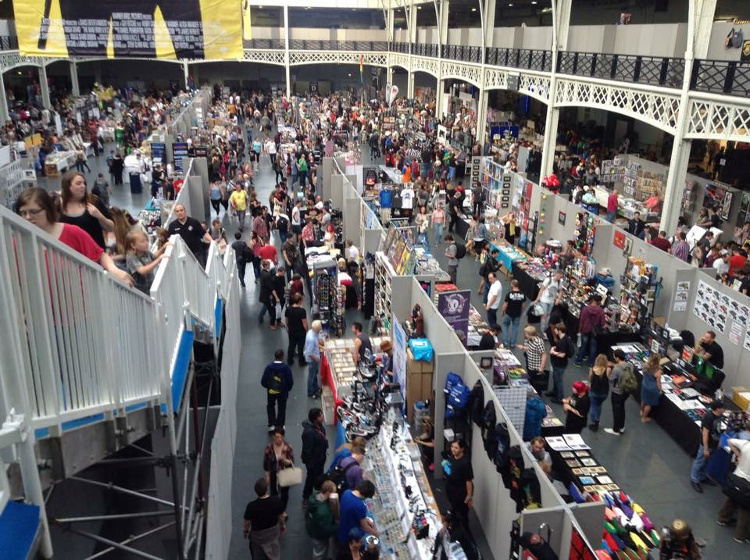








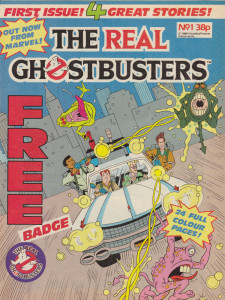
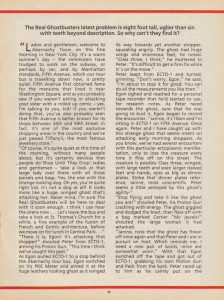
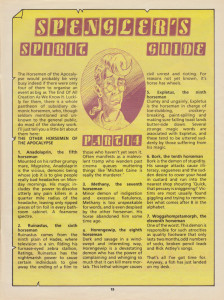
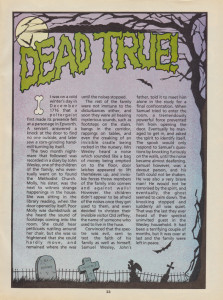
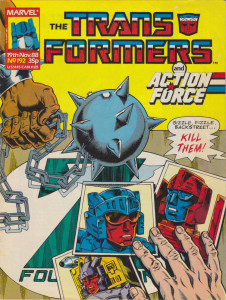
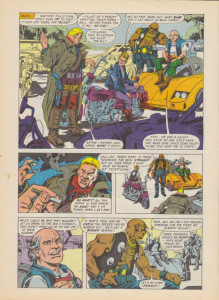
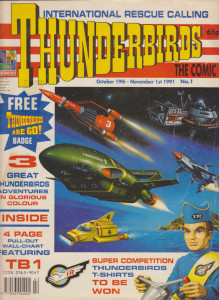
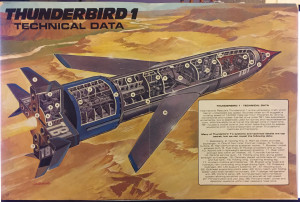





 In Memoriam: Comic Artist, Writer, Inspiration: Paul Neary
In Memoriam: Comic Artist, Writer, Inspiration: Paul Neary  Rare British wraparound cover comics remembered
Rare British wraparound cover comics remembered  International comic community pays tribute to 2000AD and Look-In artist John M. Burns
International comic community pays tribute to 2000AD and Look-In artist John M. Burns